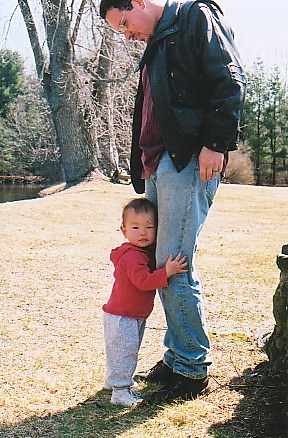🦋 Continuity
Hm, a couple of things seem not quite right with continuity in Blindness. Like for instance, my tracking of the time the inmates have been quarantined suggests it's been not so long, maybe a week at most, at the point the old man with the eye patch joins them. But the events he narrates from the outside world sound like they take place over a month or more. (More specifically, he is talking about many quarantine centers already being full of blind people; but before the arrival of the group he was in, this center was not full, and it was the very first one to be opened.) Also the wife of the first blind man says she went blind at home, weeping into a handkerchief; but she was already in the quarantine when she went blind, and this is not something I would expect her to lie about. Not a huge thing though. The narration is growing perceptibly more reserved since those remarks about formal language -- like the narrator is using formal language and technical detail to distance himself from the events he's describing. I want to find out who is the owner of the "unfamiliar voice" being referenced in the scene where they all describe what was the last thing they saw before going blind. (And come to think of it, why is the opthalmologist's wife not reacting and identifying the newcomer?)
posted afternoon of Monday, December 31st, 2007
➳ More posts about Blindness
➳ More posts about José Saramago
➳ More posts about Readings

I have no idea if it is applicable, utterly unfamiliar as I am with
the book Blindness, but in Cortizar's _Hopscotch_ the intellectual
circle the main character belongs to praise the fictious author
Morelli for among other things ending meetings at impossible times
given the time they began. As I recall they saw this as an act to
promote "male" (i.e. questioning and reflective reading -- not my
category theirs I assure you). On that note I read recently that
Sebald has been criticized for apparently deliberate mistakes in
describing settings. Apparently Sebald used such "mistakes" as a
way to emphasize the fictionality of his in many ways seemingly
non-fiction narraratives.
posted afternoon of January first, 2008 by hugo

Hm, a long time since I read Hopscotch but yeah, the
thought had crossed my mind that these mistakes were intentional on
Saramago's part to remind the reader that the narrative is
fiction. I'm always a little skeptical of explanations like that
though since I'm coming from a viewpoint that puts primary
emphasis on allowing the reader to integrate himself into the
story's world -- I project that attitude of my own onto authors
I'm reading.
posted afternoon of January first, 2008 by Jeremy

I understand your skepticism. The last time I read _Hopscotch_ I
thought it entirely possible that the characters' cult of Morelli
was at least in part jibe at intellectuals who had lost track of
reality.
posted evening of January first, 2008 by Hugo
| 
